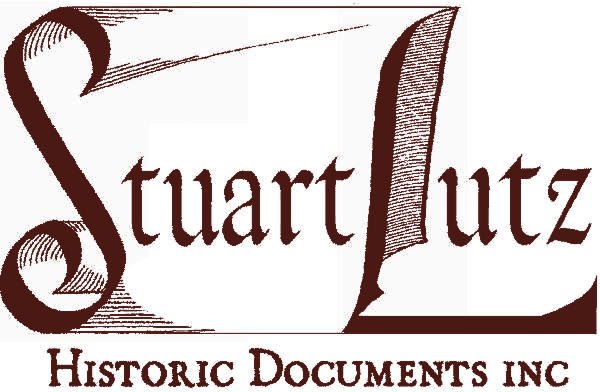| |
 (NAPOLEONIC WARS) (NAPOLEONIC WARS) |
|
|
|
|
| |
Price: $350.00 |
Stock# 5866 |
| |
HUGH ELLIOT, BRITISH DIPLOMAT TO NAPLES, WRITES TO SIR JOHN STUART, BRITISH LIEUTENANT GENERAL DURING NAPOLEONIC WARS, DURING THE SIEGE OF SICILY: “THE SURRENDER OF THE CASTLE OF SCYLLA IS WITHOUT DOUBT AN OBJECT OF THE GREATEST IMPORTANCE TO THE FUTURE SECURITY OF SICILY AND THE FREEDOM OF THE NAVIGATION OF THE FREIGHTS OF MESSINA”
HUGH ELLIOT (1752-1830). Eliot was a career diplomat for the British Empire. His postings included as ambassador to Prussia from 1777-1782, Denmark from 1782-1791, Saxony from 1792-1803, and Naples from 1803-1806, and as Governor of the Leeward Islands from 1809-1814 and Madras from 1814-1820. He also was a noted abolitionist whose arrest and execution of Arthur Hodge for murdering a slave in the Virgin Islands was a major impetus for Britain abolishing the slave trade in 1807
SIR JOHN STUART (1759-1815). The American-born son of a British loyalist, Stuart fought at the siege of Charleston, the battles of Camden and Guilford Court-House, and the surrender of Yorktown, as well as throughout the conquering of Egypt and the Napoleonic Wars.
LS. 4 pg. 8” x 10”. July 27, 1806. Palermo. A letter signed “H Elliot” to “Sir John”. After some brief platitudes, Elliot writes: “…The surrender of the Castle of Scylla is without doubt an object of the greatest importance to the future security of Sicily and the freedom of the navigation of the Freights of Messina – Sincerely I congratulate you upon this addition to the long list of advantages derived from the brilliant victory of Maida. The fall of Gaeta was always, in my opinion, inevitable, except a sufficient force could have been brought against the besiegers to have driven them from the peninsula upon which they had erected their works. I do not apprehend that our numbers were sufficient to have admitted of a detachment equal to the undertaking. I am not competent to judge how far the promise given by Sir Sidney Smith, to drive away the French from their batteries by Naval means could have been effected [sic]. Certain it is, that this government counted upon the experiments being made when it consented at the joint demand of the Prince of Hesse and Sr Sidney Smith to send an increased garrison to Gaeta. I am not yet informed whether the troops now returned from Gaeta are to be considered as bound not to act against the French or their allies for a year and a day, according to one of the articles of the capitulation. A doubt has risen here upon this point, in consequence of the French having themselves infringed the articles of that capitulation – and a Council of War is summoned in order to take this delicate subject into their consideration”. From the summer of 1805 until January 1806, British and Russian troops were jointly stationed in Naples to defend it from the French troops under the Duke of Rivoli. Though Elliot advocated against retreating, both armies pulled out of Italy altogether and France conquered Naples by February 8th, 1806. A stalemate was reached when the British invaded Italy at the Battle of Maida on July 4th, referenced in the letter, and subsequently re-established control over Sicily under Ferdinand IV after the Siege of Scylla, also referenced in the letter. Nonetheless, Elliot, perhaps because of his criticism, was recalled as Ambassador and blackballed from a diplomatic posting for the next several years. The French never took Sicily, in part because the French took Gaeta, referenced in the letter, but Italian monarchical control over Naples was not restored until the formal union of the Kingdom of Naples with the Kingdom of Sicily into the new Kingdom of the Two Sicilies in 1816. This letter is an excellent first-hand account of the military and political dynamics at play in the Italian theater of the Napoleonic Wars, and is in very good condition. |
5866
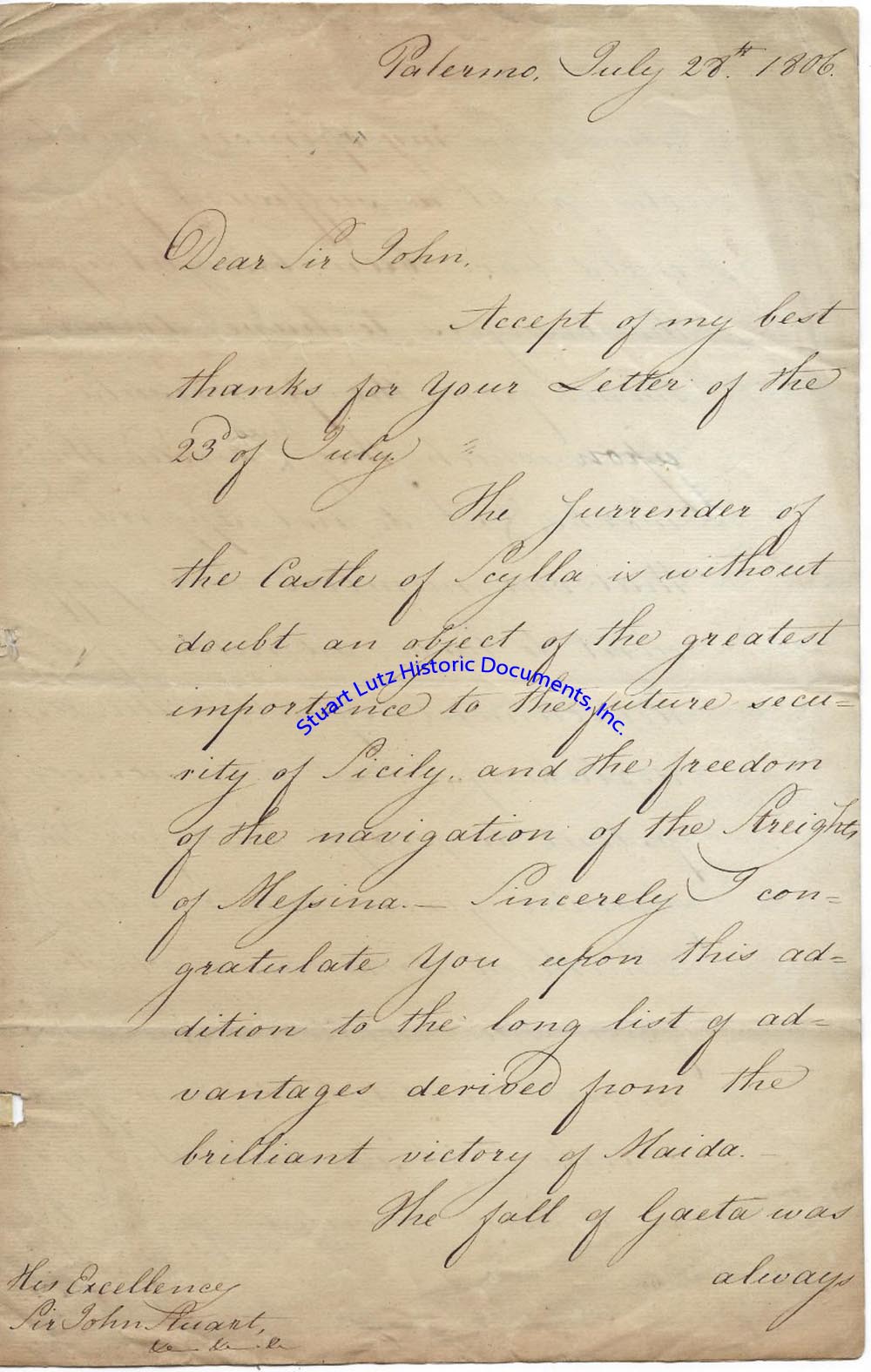
|
|
| |
| |
 (OCCUPIED JAPAN) (OCCUPIED JAPAN) |
|
|
|
|
| |
Price: $200.00 |
Stock# 5824 |
| |
A LETTER FROM OCCUPIED JAPAN JUST ONE MONTH AFTER V-J DAY DESCRIBING THE HARSH REALITY OF POST-SURRENDER JAPAN: “EVERY DAY THOUSANDS OF SMALL KIDS APPROACH YOU THEIR LITTLE HANDS STRETCHED OUT IN THE HOPE THAT YOU’LL GIVE THEM A PIECE OF CANDY”
(OCCUPIED JAPAN). ALS. 4 pages. 8” x 10 “. Osaka, Japan, October 8, 1945. An autograph letter signed “Van” to “Jane” describing the misery on the ground in Japan right after the end of the Second World War. Van is writing “Amidst a large crowd of Jap. civilians who have been begging me for some food, candy or cigarettes.” He later writes that “Japan so far has been nothing but misery and disease to me, along with big towns or small villages in complete ruins. So the people are living in the streets, under buildings, bridges, sleep under wrecked cars, busses, trolleys, etc. Every day thousands of small kids approach you their little hands stretched out in the hope that you’ll give them a piece of candy. Women unable to feed their babies, come up to you, with the little child sucking away on their breast, but not getting any milk at all. They beg for milk on their knees. Other women offer their gold wedding rings for a couple of C ration crackers. Disease is all over. Children with sores as big as a silver dollar all over their skinny bodies by the dozens. How the heck can you possibly refuse to give them a negative answer. This afternoon I actually couldn’t walk, because I was surrounded by women who kneeled down in front of me begging for food. I finally had to show them that they had no reason to be afraid of me, so I bent over, and put my hand underneath the chin of a young women, who was quite pretty. I lifted up her head and looked…The people here have no food at all, except for a few potatoes that they manage to grow in the streets or among the ruined buildings. They all carry huge sums of money, in the hope that some G.I. will sell them a can of C-rations or a K-ration, which they will pay for with as much as 500 yen ($30.00) of course it is strictly {sic} forbidden. But some guys get away with it and are making a fortune at the present”. After a few concluding thoughts and sending “Loads of Love”, Van writes a postscript saying he expects to be home by Easter. Pages are numbered at the top. The collection is missing the third and fourth pages and contains a noticeable horizontal crease across the middle of the pages but is in otherwise very good condition. |
5824
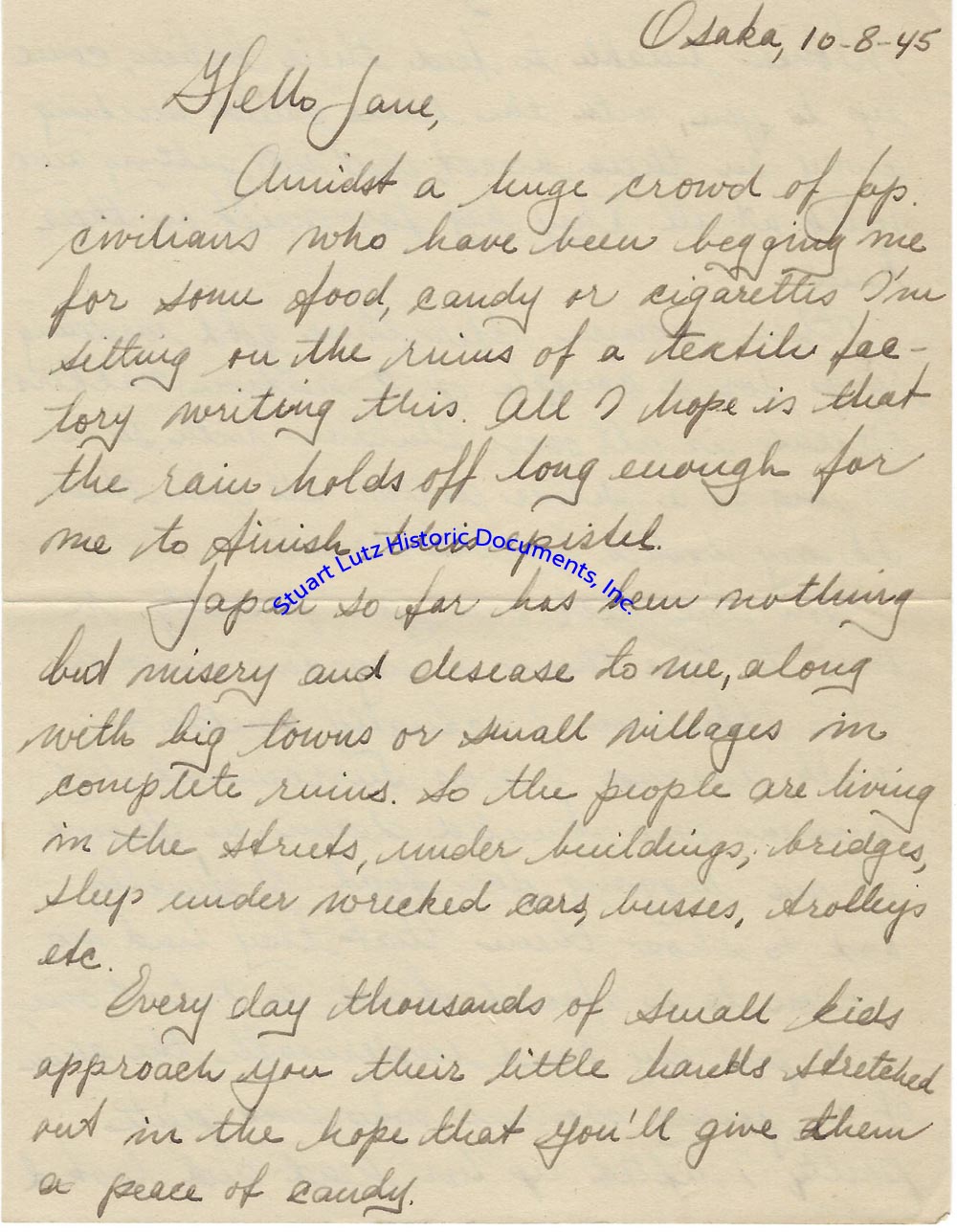
|
|
| |
| |
 (SWITZERLAND) (SWITZERLAND) |
|
|
|
|
| |
Price: $150.00 |
Stock# 3530 |
| |
(SWITZERLAND TRAVEL LETTER). ALS. 4pg. 5 ˝” x 8 ˝”. July 4, 1878. Hotel Du Lac, Moritz, Switzerland. A lengthy autograph letter signed “Mother” about travel around Switzerland. It is addressed to Emma, and the envelope is to Mrs. J. Minis Hays of Philadelphia. Two people wrote the letter, and it states in part: “Over 6000 feet above the sea! My Dearest Emma, Never did I think I should see it snowing on the Fourth of July! When I rose this morning at six, it was snowing & was of course, cold. I slept under a blanket, down ‘puff’ and quilt; and have on this morning all my winter clothing, as I had in January and still am cold: thermometer is our room is 55: we shall have a fire. I hope you are not oppressed with heat today, or when you read this. We have a fine, large & very pleasant room, with the sun shining bright in it, wh[ich] takes off the sharpness of the cold. And I put my head out, to see the American flag flying on our hotel, with the English, Swiss & many other flags. We left Bellaggio on Tuesday morning at ten & arrived at Calico, (in a thunder storm) in 2 hours by boat: our coaches were awaiting us, each with 4 horses, and in the rain, we drove off, but it soon ceases, we had a pleasant afternoon, and a most charming drive; we stopped at Cidaveannue to dine, & reached Romoutogno where there was a good large hotel (our room secured) & we there spent our first night in Switzerland, the next morning at nine, we left, and ascended nearly the whole distance to St Moritz a most enchanting drive. Mountains & cascades and fields of thousands of acres filled with the most beautiful wild flowers, & most of them entirely new to us; Mr. Waldo Burnett was assiduous in picking huge bouquets of them for your mother who was nearly wild over them. We arrived here at five o’clock last evening and found our rooms ready for us: this is a large hotel & new (2 years ago) & said to be the best here; it certainly is very fine & nearly all the rooms are taken! I was impressed to see it lighted with gas. This place is very charming, certainly; mountains to: before us, covered with snow; and the views are beautiful; this is written before breakfast & I have not yet walked out. (It is now snowing thick & fast) We breakfast at 9 1/2; dine at one; and have ‘souper’ at 7-1/2, wh[ich] is a very substantial meal. Imagine dearest Emma three snowfalls, between the time your father mentioned to you 6 o'clock this very morning & ten when we had finished breakfast & you can imagine the cold of this Atmosphere & yet I do not suffer from the cold at home it is a totally different sensation, quite exhilarating although your teeth chatter & you are purple about the mouth & hands quite numb with the call. I took breakfast in my camels hair dress made by Mdmle Pourmier my fur (Canada) under an outer of the same & a shell over my arm & was warm until I had my tea but forgot it all when I had a good view of our surroundings the sun came out & the snow covered mountains in front & the glacier beyond the two snow mountains at the side of the home glistened like Island diamonds it was exquisitely beautiful. While it was snowing one could not see the glory of it the wind comes the snow off somewhere & with all this cold the green lawn in front between us & the mountains is perfectly yellow with wild flowers not buttercups alone but yellow daisies & pansies & at least eight different kinds of yellow flowers all growing together then you will see a field perfectly pink throughout & another more purple & in some everything together & so thick that but little grass is seen never dreamed of such things & where it is so cold you would say no flowers could nourish Mrs. Mamie has just shown me a card with 6 large Edelweiss pressed & arranged upon it in the most artistic manner with a large bit of moss & lichens as a base for the stem to arise from She bought it here & I shall look for some She says there are more the 300 varieties of flowers in these mountains & a fine book has been prepared on the subject. I shall try for that too.” The letter is in fine condition overall and it is lined blue paper. |
3530
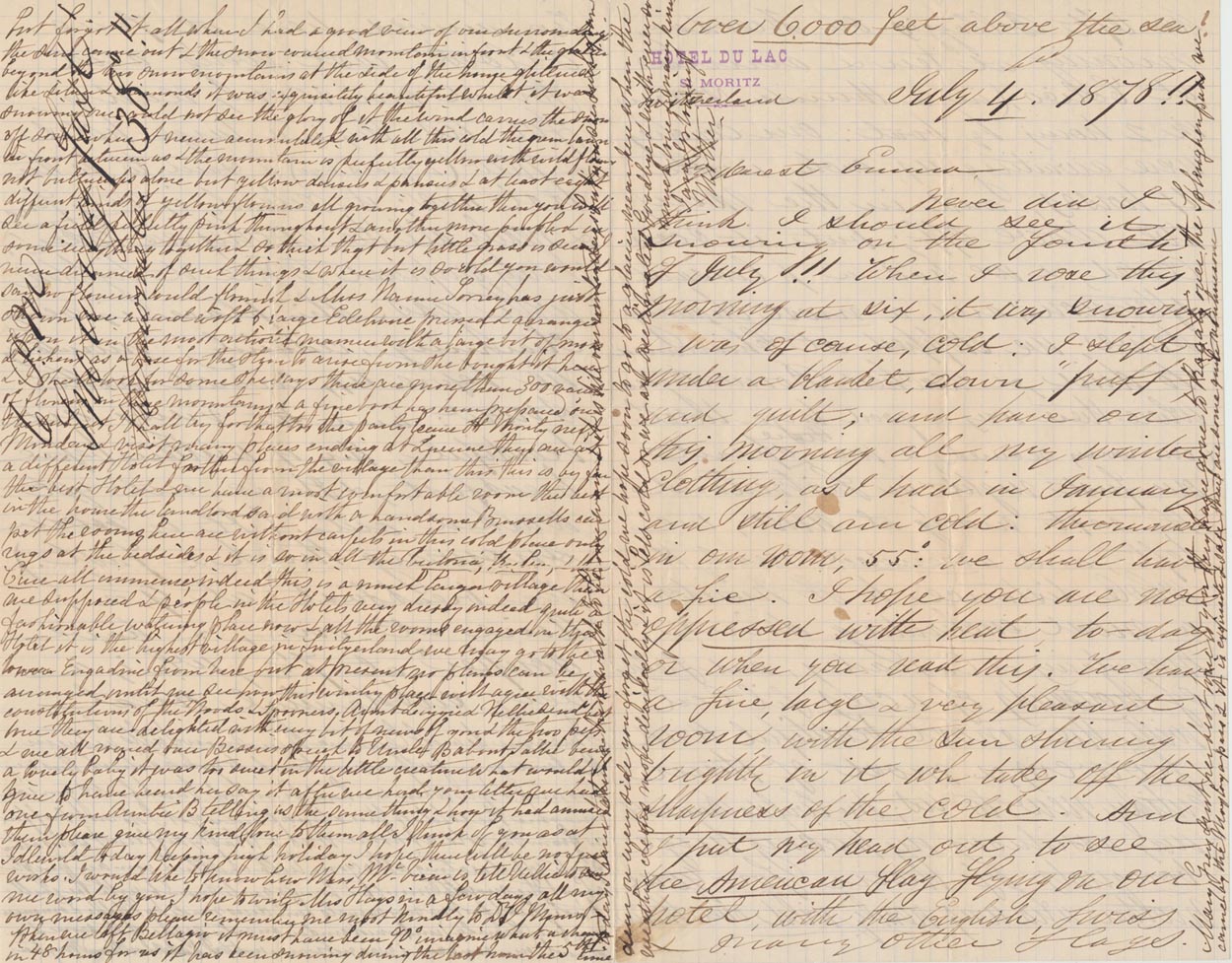
|
|
| |
| |
 (THE PANAMA CANAL) (THE PANAMA CANAL) |
|
|
|
|
| |
Price: $150.00 |
Stock# 2753 |
| |
“NEW-COMERS HERE WANT ME TO GO ACROSS THE CANAL TO A NATIVE VILLAGE WITH THEM AS I TALK SPANISH AND THEY THOUGHT I COULD GUIDE THEM A LITTLE BETTER AS I KNOW THE CULTURE AND LANGUAGE OF THE NATIVES”
(PANAMA CANAL). ALS. 3pg. 8” x 10”. July 20, 1913. Balboa. An autograph letter signed “James” to his mother. James was working on the Panama Canal: “…We are having real nice weather here in Balboa. I got up rather early this morning and it is now 6:30 A.M. – and the thermometer is just 76, so that it [is] really comfortable – as you can imagine. Some of the boys that are new-comers here want me to go across the canal to a native village with them as I talk Spanish and they thought I could guide them a little better as I know the culture and language of the natives. One man is sort of a horticulturist and agriculturist from one of the western states just came here to work on the docks & terminals and he is very much interested in plant and jungle life here. I have told him about none of the…that I have found along rivers and in swamps and he is so much interested in finding some himself but they are a little hard to find that is you usually find them when you least expect to run into them…there is such little duty into Panama really – if any…we had a shake up in organization and fortunately I came out with the survivors – and have a real nice job. Am still on the permanent town site works and terminals and like that work so much…”. The letter has the usual mailing folds, but is in very fine condition otherwise. |
2753
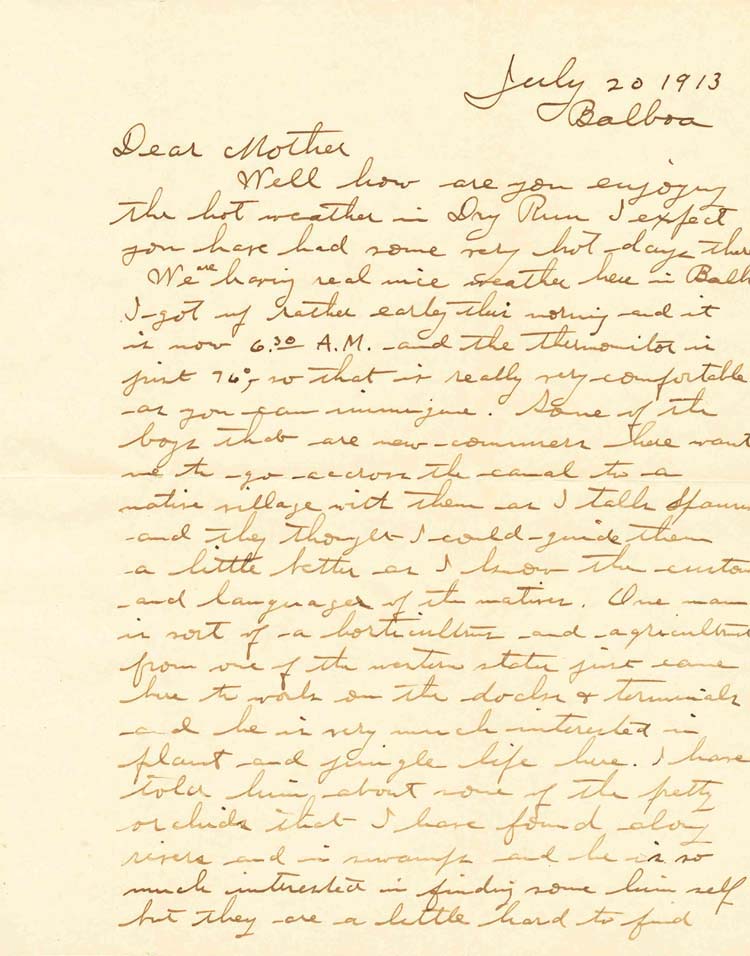
|
|
| |
| |
 (YOKOHAMA, JAPAN) (YOKOHAMA, JAPAN) |
|
|
|
|
| |
Price: $125.00 |
Stock# 3655 |
| |
AN AMERICAN MERCHANT IN JAPAN ASKS FOR CATALOGS FROM HOME "ANY THING YOU MAY SEE THAT IS A CHEAP TOOL AND A USEFUL ONE"
(JAPAN). ALS. 1pg. 8” x 10”. January 25, 1876. Yokohama, Japan. An autograph letter signed “Harry Comstock” by one of the first American merchants in Japan. The country had only opened its ports to Americans two decades earlier: “Friend Hardy, Will you please send me a catalogue from each of your manufacturing Cos of your city. I particularly want them from builders of small machinery. Such as foot lathes very cheap. And if you can get me a catalogue of hand looms don’t fail to send me one. Illustrated if it can be got. Also any thing you may see that is a cheap tool and a useful one. On all of the price lists please get the best cash discounts delivered in N.Y. if I require it. I am doing a nice business in this line of goods and have formerly been buying of N.Y…but I must buy of the manufs to compete with English goods. Please write here and what you are doing and with kind regards to your family. I am very truly yours Harry Comstock”. Comstock ran a brass foundry in Fitchburg, Massachusetts, and his stamp can be seen on the verso. The letter is in very good condition. It is separated along one of the folds and was repaired. |
3655
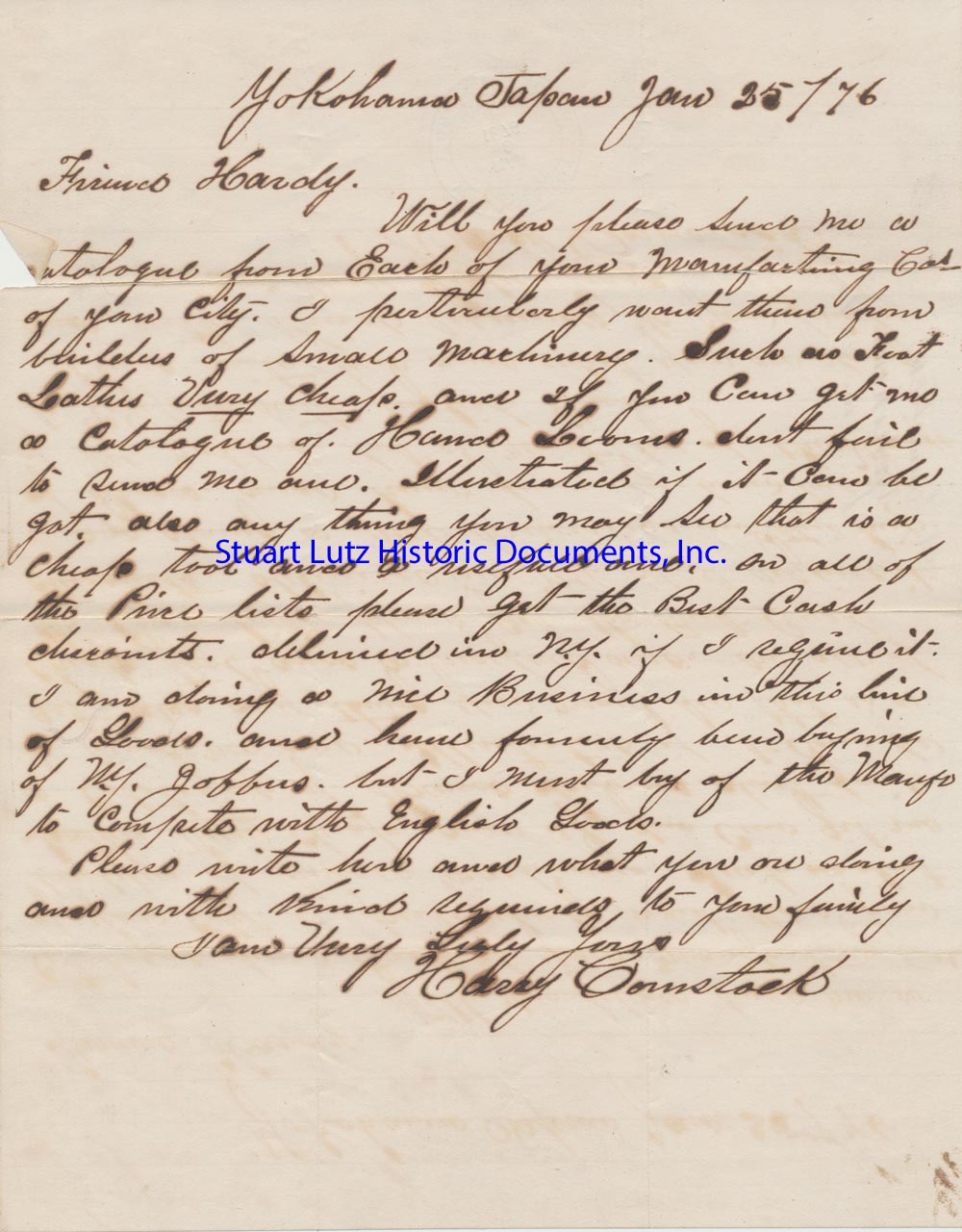
|
|
| |
| |
 MARIE ANTOINETTE MARIE ANTOINETTE |
|
|
|
|
| |
Price: $5,000.00 |
Stock# 6262 |
| |
A RARE MARIE ANTOINETTE AUTOGRAPH
MARIE ANTOINETTE (1755-1793). Antoinette, an Austrian archduchess, was the wife of King Louis XVI of France. She was the last Queen Consort prior to the French Revolution and she was beheaded a few months after the king.
Signature. 4” x 1”. No date. No place. An autograph “Marie Antoinette” removed from another manuscript. It is encased in a small black wooden case with a metal ring atop. Her autograph is rare. |
6262
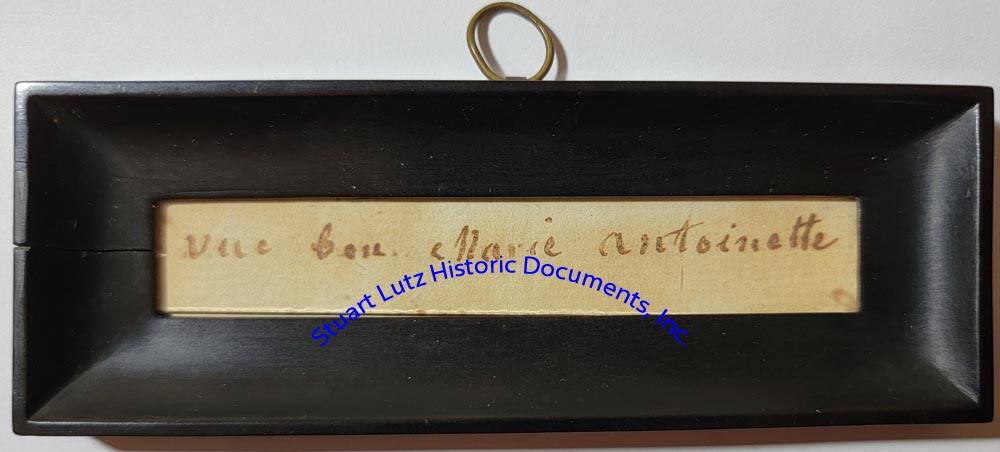
|
|
| |
| |
<Previous 6> <Next 6>
|
 |
